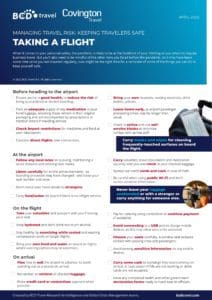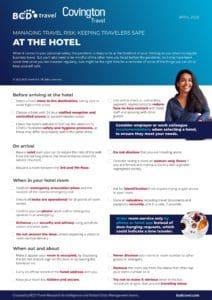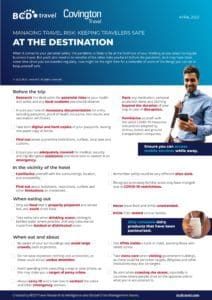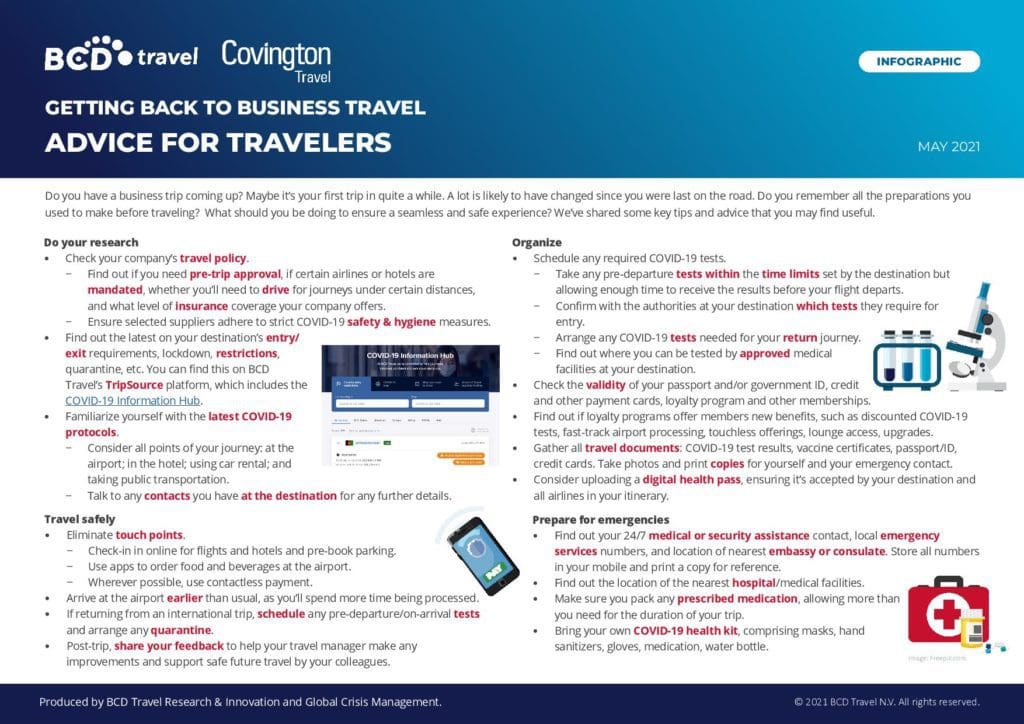
Greenwashing refers to making false or misleading claims about a product’s or service’s environmental benefits. It is a growing concern in the travel industry, as more and more companies try to capitalize on the increasing consumer demand for sustainable travel options. For business travelers to avoid using travel vendors that are greenwashing, it is important to be aware of the common tactics used by companies to mislead consumers. By taking a critical and informed approach to evaluating the environmental impact of your travel choices, you can reduce the environmental impact of your business travel.
Vague Declarations
One common tactic used by companies to greenwash their products and services is to make vague or ambiguous claims about their environmental benefits. For example, a hotel may claim to be “eco-friendly” without providing specific information about how its actions reduce its environmental impact.
Travel Maestro tip: Avoid being misled by these types of claims by looking for specific, verifiable information about a company’s environmental practices. For example, proud eco-programs tout how much electricity is powered by renewables (solar, wind, etc.) and the extent of their water efficiency (low-flow showers and greywater management).
Exaggerating Benefits
Another greenwashing tactic is to exaggerate the environmental benefits of their products or services. For example, a hotel may claim to be “carbon neutral,” but they may only offset a small portion of their carbon emissions. Or maybe a restaurant switched to biodegradable straws and takeout containers yet doesn’t address food waste management.
Travel Maestro tip: Look at the company’s website to see if they have independent certifications (ex. LEED and B Corp certification) or third-party verification of their environmental claims. Organizations such as the Green Key are trustworthy. Participation in community initiatives, industry associations (ex. Global Sustainable Tourism Council), and partnering with local NGOs that promote sustainable travel are good signs for business travelers who want to avoid greenwashing.
Not Telling the Whole Story
Another misleading tactic used by companies to greenwash their products and services is to focus on one aspect of their environmental impact while ignoring others. For example, a hotel may claim “green” status because the building has LEED certification and uses energy-efficient light bulbs, state-of-the-art water efficiency, and local materials and resources. But if the location doesn’t offer mass transit and guests must use independent transportation to arrive there, the carbon savings is more than negated by the location.
Travel Maestro tip: Look at a company’s overall environmental impact, not just one aspect of it so you get a complete and accurate picture of the organization’s commitment to sustainability.
There’s no question that business travel has a large carbon footprint. That makes it even more important to avoid greenwashing in business travel by being aware of the common tactics used by companies to mislead consumers, taking a critical and informed approach to evaluating the environmental impact of your travel choices, and looking for independent certifications or third-party verification of a company’s environmental claims. Additionally, it is important to look for companies that have a strong and transparent commitment to sustainability. By following these guidelines, you can make more informed and responsible travel choices, and help to support the development of a more sustainable travel industry.






Leave a Reply